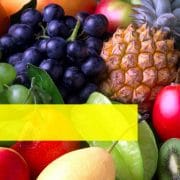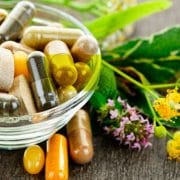Cooking Matters and the Benefits of Micronutrients
 The Benefits of Micronutrients
The Benefits of Micronutrients
We know fruit and vegetables contain healthy micronutrients – vitamins and minerals, but did you know that different methods of food preparation can affect the levels of vitamin content and bioavailability (how well they’re absorbed).
It appears some micronutrients are most available and better absorbed:
- eaten raw
- if food is cooked
- when foods are eaten with other foods
- when their structures are broken down first (such as chopping or crushing)
For example:
- The compounds in blue-red foods (called anthocyanins) such as plums or eggplant are digested relatively quickly. Many types of anthocyanins, such as those in berries, are readily available and best eaten raw.
- Water-soluble vitamins found in vegetables such as dark leafy vegetables and capsicum can be lost when cooked in water. To preserve vitamins the best method is steaming, blanching, sauteing or roasting.
- Micronutrients in tomatoes or many carotenoids in yellow, orange or red plants, are often better absorbed when cooked.
Micronutrients, such as those in dark leafy vegetables, become more (or less) available when combined with other foods. Examples of this are:
- Fat-soluble vitamins need fat to absorb them. So put olive oil, real butter, avocado or nuts with your salad or vegetables.
- We need vitamin C to maximise iron absorption, so squeeze lemon juice over your leafy greens
- Combining vegetables with extra virgin olive oil is the magic combination of the healthy Mediterranean diet
- Chopping or crushing garlic, then letting it sit for a few minutes before cooking, will release allicin, a powerful disease-fighting chemical.



 The marketing of antioxidant supplements
The marketing of antioxidant supplements